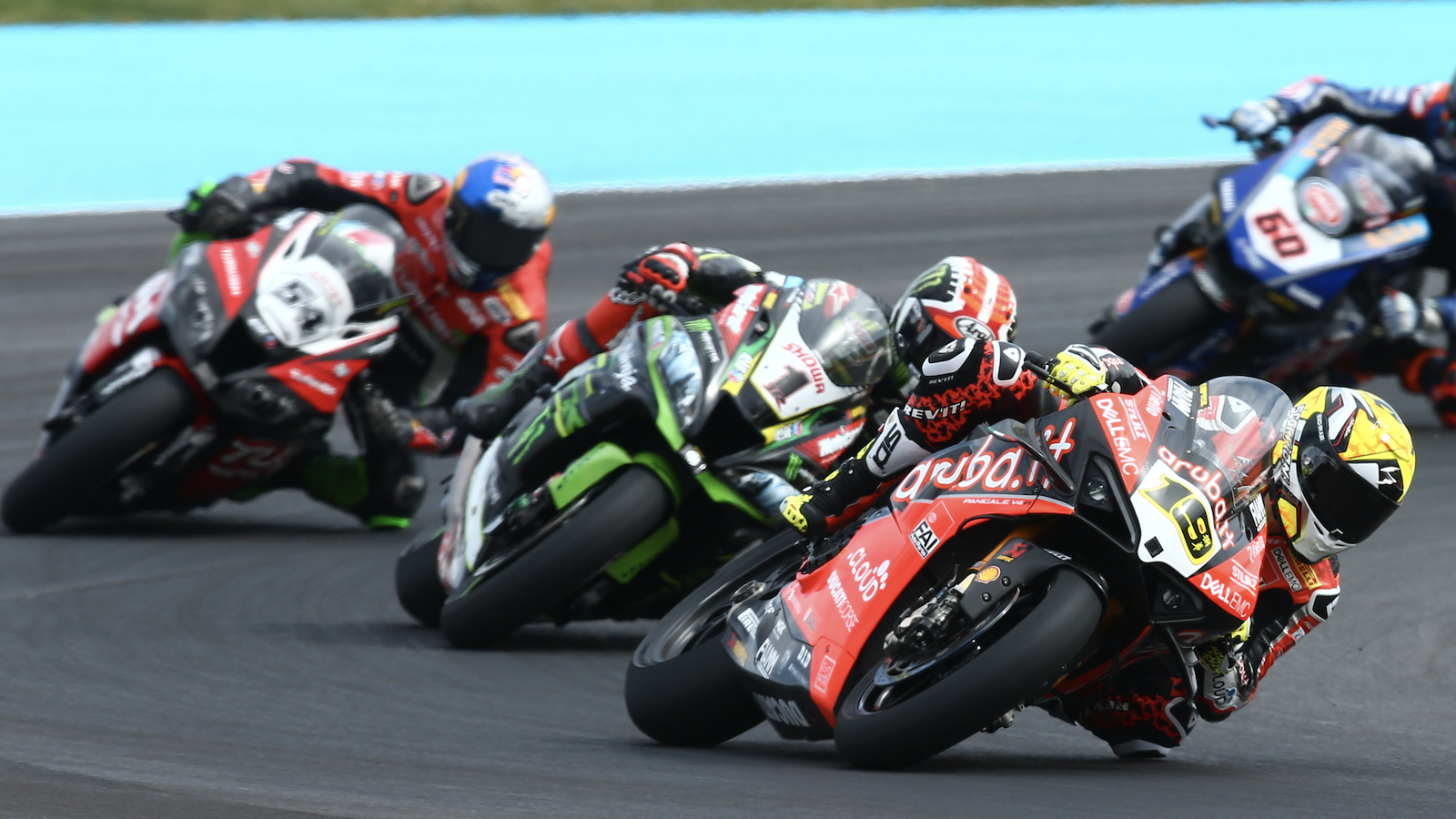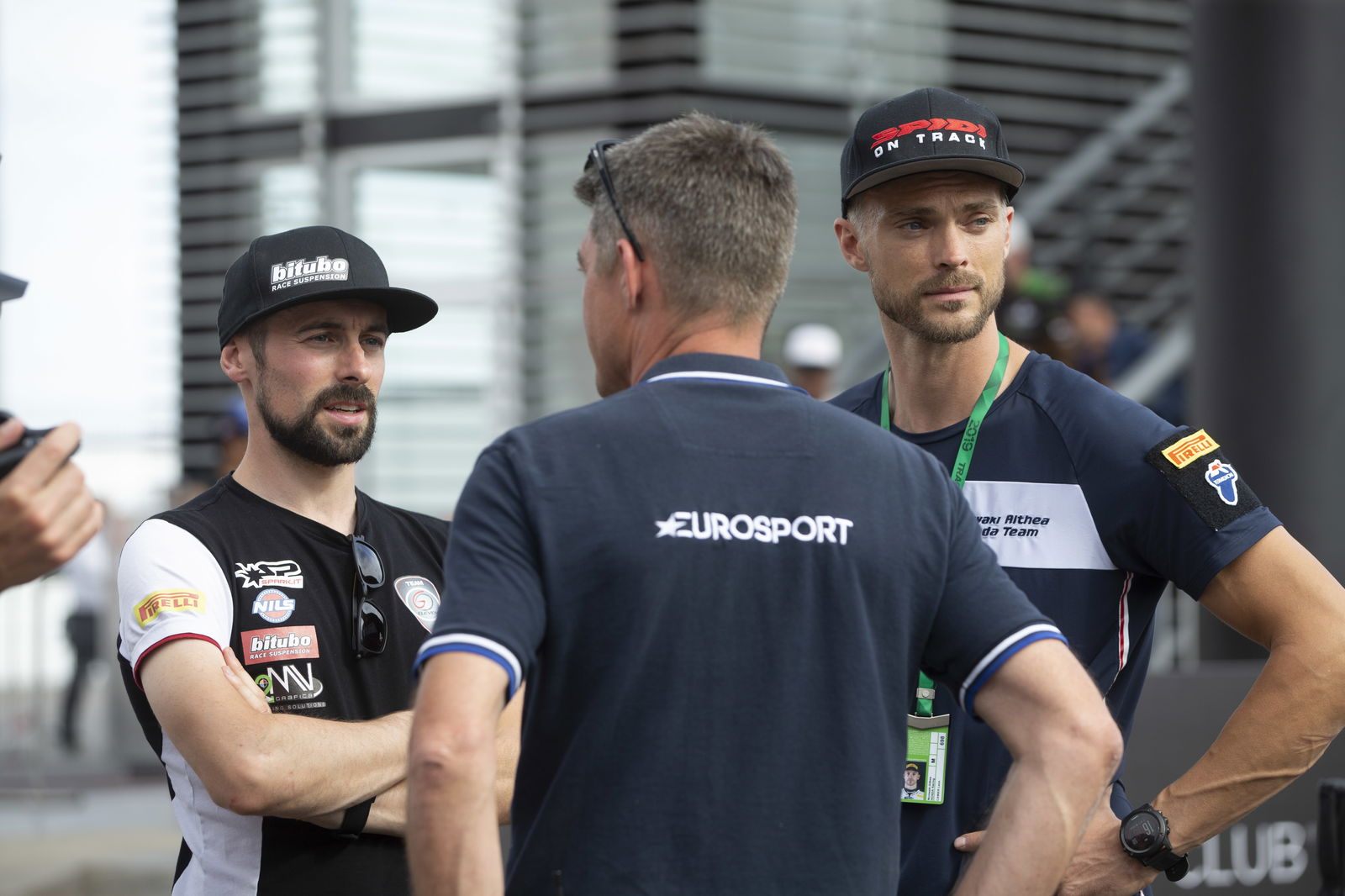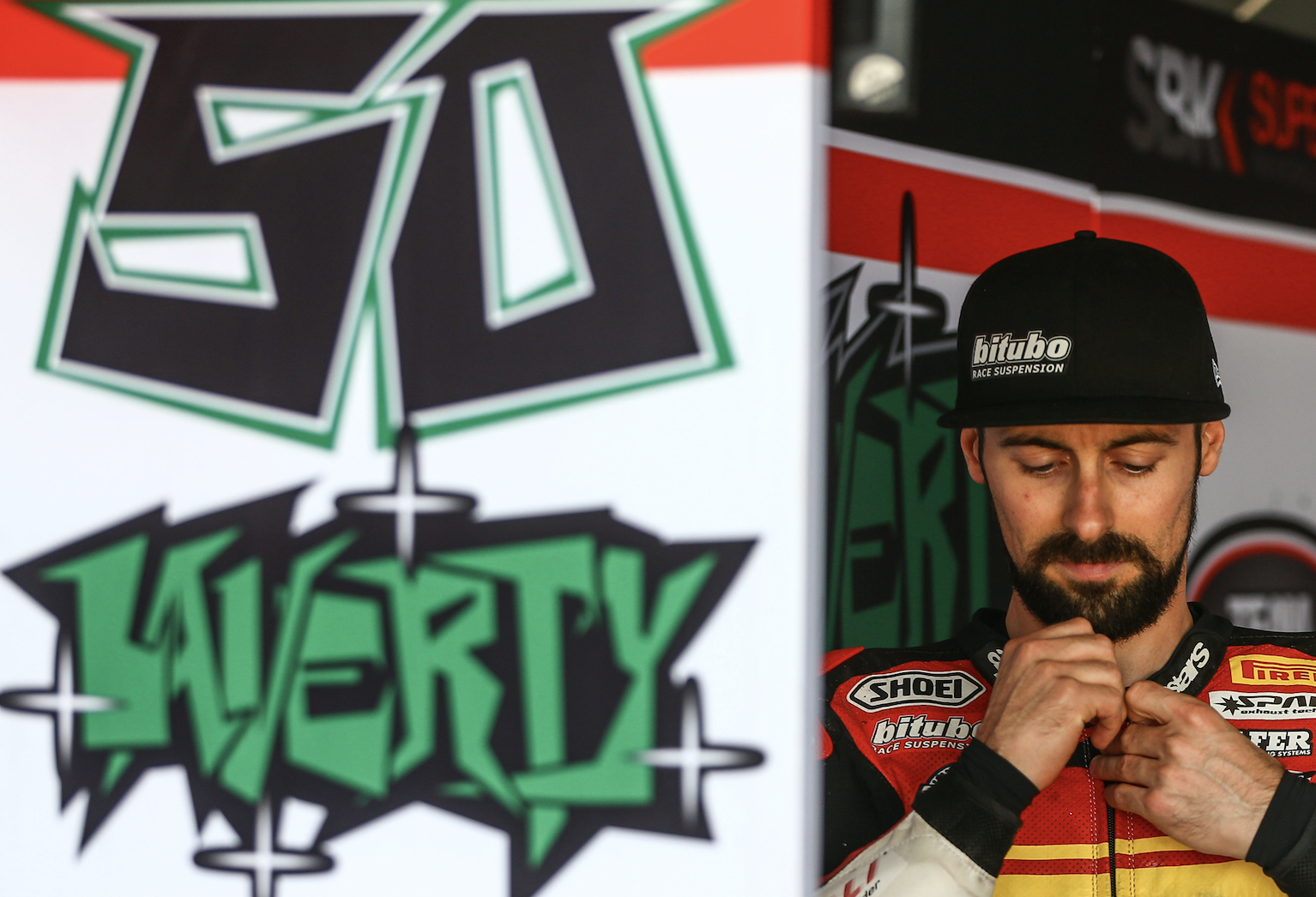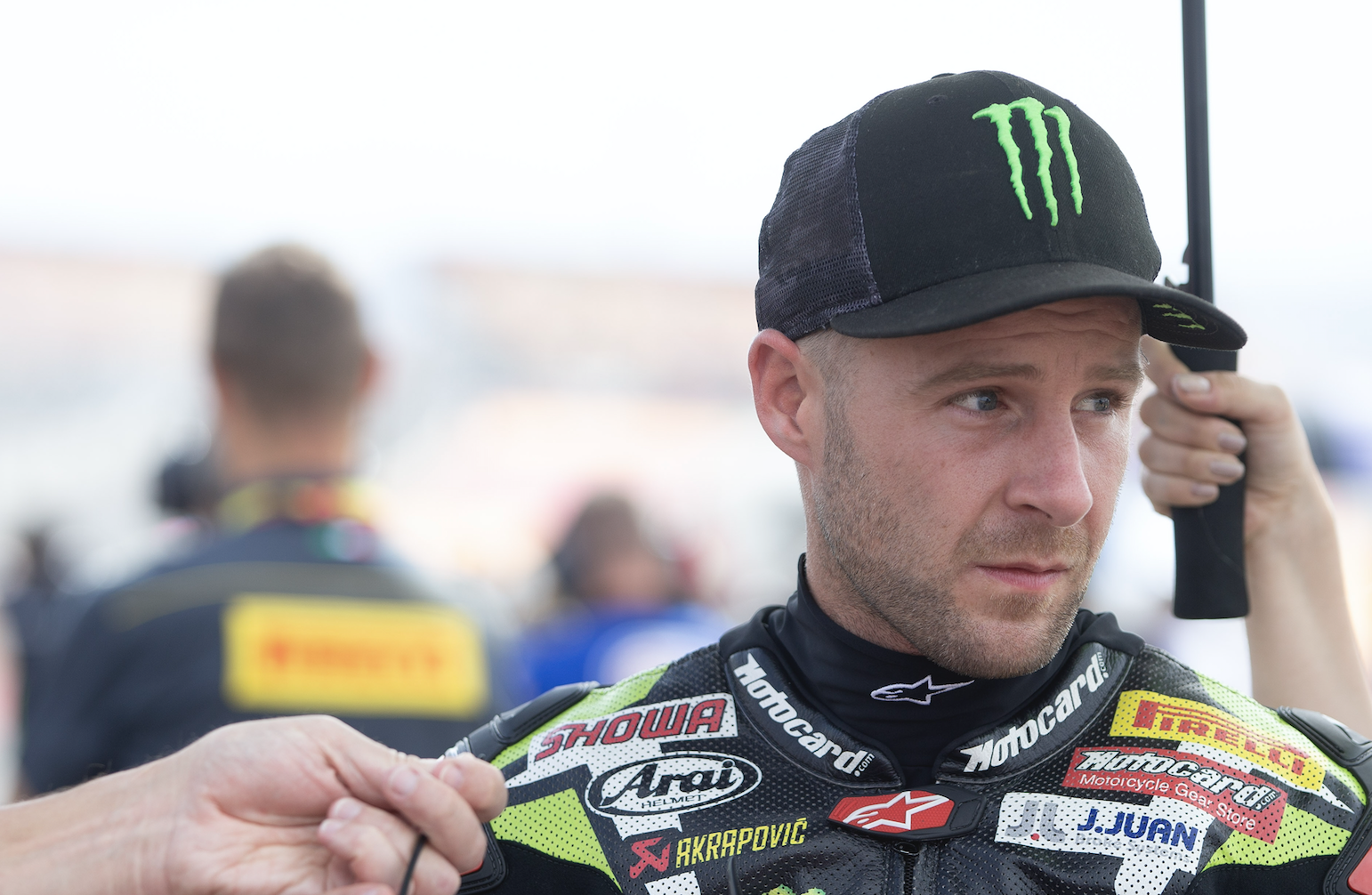‘FIM told us circuit falls short of WorldSBK requirements’ - Statement
Statement released on behalf of six riders who boycotted first WorldSBK race at San Juan Villicum accuses FIM of knowing circuit did not pass homologation

A selection of riders have stepped up their criticism of motorcycling’s governing body, the FIM, over the decision to continue racing at the San Juan Villicum WorldSBK circuit in Argentina despite admitting it ‘falls short of the homologation requirements’ prior to the event.
Six riders – Chaz Davies, Eugene Laverty, Leon Camier, Sandro Cortese, Marco Melandri and Ryuichi Kiyonari – refused to start Race 1 on safety grounds.
Though excessive dust had been the main cause for concern on Friday, rising temperatures on Saturday prompted a new problem as oils used in laying the asphalt rose to the surface to create a patchy slick surface. This was blamed for an off-throttle crash for Leon Haslam and for Loris Baz, the latter injuring his wrist.
After a heated discussion between riders and race directors, it is claimed 14 of the 18 riders were unwilling to start, a majority that would have likely seen the race cancelled or rescheduled for Sunday when cooler temperatures would have solved issues with the surface oil.
Indeed, the riders claim one of FIM’s own safety officers showed images of the oil on track to riders just minutes before the start of the race, galvanising their concerns to expect the race to be cancelled.
However, in the end 12 riders took their spot on the grid, with Davies, Laverty and Camier each claiming organisers had applied pressure on teams to force its riders to race. Jonathan Rea was singled out for particular criticism after agreeing with the boycott as a member of the riders’ safety commission before going back on that and starting.
A statement released on behalf of the six riders took aim at the FIM for allowing the race to go ahead despite, what they say, its own admittance the San Juan Villicum circuit did not pass standard to be homologated ahead of the weekend, only to green light it anyway.
“This situation with the oil was confirmed just 10 minutes before the opening of pit lane when an FIM safety officer involved in the final circuit inspection showed us photos showing the oil seepage they had witnessed moments prior. Our expectation upon viewing these pictures was that there was no way the organisation would allow a race to go ahead with such obvious hazards.
“For several months everyone has been aware of the conditions we were likely to find in San Juan. Despite this, we arrived here to find a circuit that, in our opinion as riders, is not fit for purpose. This was confirmed by an FIM representative, who told us that this circuit falls short of the homologation requirements, even before the weekend began. There are multiple issues that fall short.”
Read the statement in full below

Statement on behalf of the 6 WorldSBK riders
(Leon Camier, Eugene Laverty, Chaz Davies, Sandro Cortese, Ryuichi Kiyonari, Marco Melandri)
“Racing motorcycles is our childhood dream, our passion and our livelihood. We want nothing more than to line up and give our best when the lights go out. We never want to let down the fans in attendance, the viewers at home, our sponsors, our teams or our manufacturers. However, sometimes you have to stand up for what is right, especially when it concerns rider safety. Below we have given some background as to why six of us reluctantly took the decision not to race today.
Twenty minutes before the opening of pit lane the majority of the WorldSBK riders (14 of 18) had a private meeting where we all agreed that we were not comfortable racing with the track conditions here in San Juan. The preferred option was to cancel today’s race and go ahead tomorrow with two full length races under the cooler conditions forecast for Sunday, this option was expressed to the organisation. Again, the majority of riders agreed this was the best compromise. Racing on Sunday rather than Saturday would give the opportunity to the organisers to further clean the circuit and take advantage of the lower temperatures (in the cooler conditions experienced during the mornings FP3 session all riders agreed that the circuit was in an acceptable condition).
It is our understanding that the work due to be done to the track had been severely delayed, meaning the asphalt was only finished in the days leading up to the WorldSBK event. This seemingly gave no time for the new surface to settle and therefore in the extremely high track temperatures today, the tar oils were seeping up through the surface. We understand it was this oil which likely caused the huge highside of Haslam and sent Baz to hospital (both whilst on outlaps).
This situation with the oil was confirmed just 10 minutes before the opening of pit lane when an FIM safety officer involved in the final circuit inspection showed us photos showing the oil seepage they had witnessed moments prior. Our expectation upon viewing these pictures was that there was no way the organisation would allow a race to go ahead with such obvious hazards.
For several months everyone has been aware of the conditions we were likely to find in San Juan. Despite this, we arrived here to find a circuit that, in our opinion as riders, is not fit for purpose. This was confirmed by an FIM representative, who told us that this circuit falls short of the homologation requirements, even before the weekend began. There are multiple issues that fall short.
Today was our opportunity to stand together as a group and demonstrate that we are only prepared to take the huge risks we do on circuits that meet the required safety standard of 2019. Due to various external pressures exerted on riders and personal interests, our group of 14 became fractured and our voice was not heard. Instead, the six of us were made to look like a disruptive minority unwilling to go racing, which was just not true.
We put our faith in the organisers to make sure that each circuit we visit is fit for purpose, regardless of the challenges they may face in different geographical locations. Whatever challenges they face, it is our opinion that they should at least listen to the riders and be prepared to adapt the schedule during the weekend if it is in the interest of safety.
No one wants change to happen only because of an accident. We hope that, after today, there will be continued and enhanced cooperation between the riders, the teams, Dorna and the FIM to ensure that rider safety remains the priority in our sport.
Now, let’s get ready to race tomorrow







